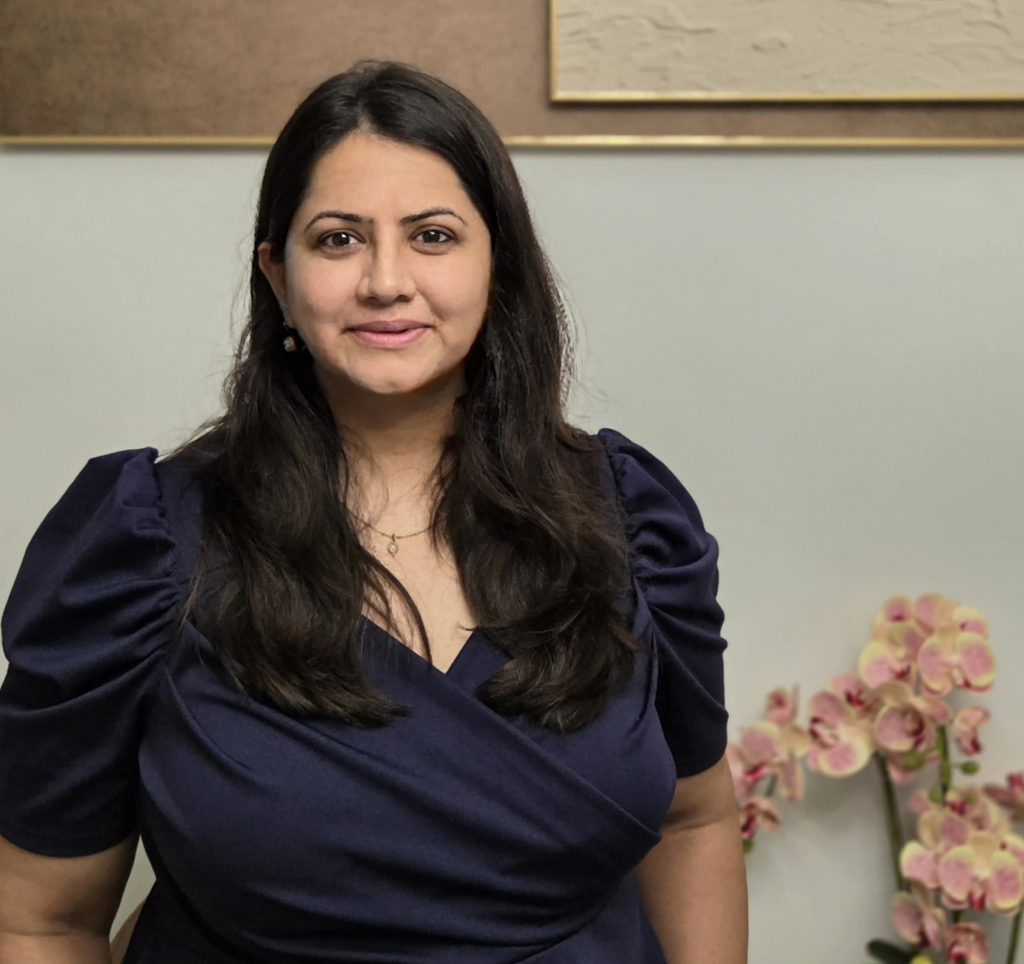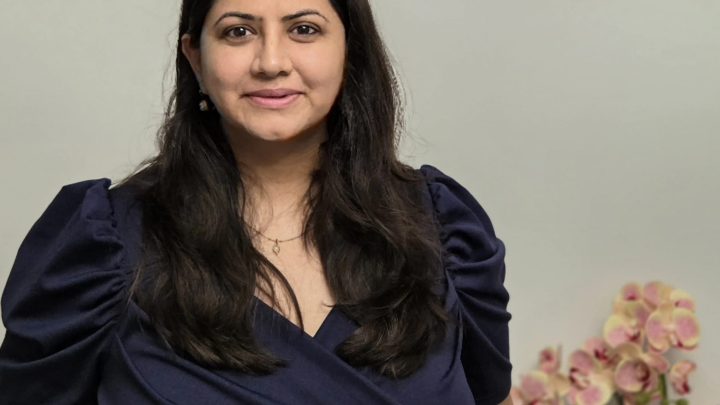Interviews
4863
0
0
“To protect intellectual property in businesses, companies should adopt a proactive IP strategy that includes identifying the IP in various products, securing protection through timely registration of patents, trademarks, copyrights, and designs early on.” – Geetanjali Visvanathan, Partner at Ira Law.
This interview was taken by SuperLawyer Team
Posted on April 29, 2025
This interview has been published by Anshi Mudgal and The SuperLawyer Team

With nearly 16 years of distinguished experience in the legal field, what initially motivated you to pursue a career in law? Which aspects of the profession have resonated with you the most, and how did your time in law school contribute to shaping your legal journey?
My taking up law as a career path was unexpected, considering that I had taken up science in 12th standard. While preparing for various entrance examinations, I was introduced to a book on law by my dad. The questions there sparked my curiosity, and I loved how everything was reason and logic based, which prompted me to pursue law.
Law School provided a crucial foundation. I participated in moot courts during my college days, where I discovered the excitement of building a case, researching legal propositions, advocating and thinking from either side, and arguing the case before judges, which is ultimately what shaped my choices after law school.
Having completed your LL.M. at New York University with a focus on Competition, Innovation, and Information Law, what factors influenced your decision to choose this particular program and university? How has your experience at NYU shaped your career, and how has this advanced degree contributed to your professional growth?
Having started my career in a top tier Intellectual Property Law firm, I always wanted to pursue an LL.M. in the same field. As NYU was offering an integrated course covering these subjects, I knew that was the right course for me given the new legal challenges that we face in the ecosystem of rapidly changing technologies.
My experience at NYU was extremely rewarding as it afforded me the opportunity to engage with lawyers from diverse backgrounds and jurisdictions.
At the outset of your career, you worked with a renowned firm. What were the key experiences during this time that significantly enhanced your understanding of the law, and how did these early experiences help shape your career trajectory?
I was fortunate to have had a diverse portfolio of matters early in my career which provided me with better and practical understanding of the various IP laws. Each case I worked on and every mistake I made were valuable learning experiences that contributed to my growth.
I vividly remember my first case, which centered around infringement of an iconic and classic Bollywood film. Attention to detail in the documents proved pivotal in securing a favorable order for us – a learning that I have carried along till date. Similarly, each day in court is a new experience, which has helped me grow, and continues to teach me something new every single day.
With your extensive experience in negotiating and drafting music licensing agreements, how do you approach negotiations with international platforms such as Spotify, Apple Music, and TikTok? What challenges do varying jurisdictions present in these types of negotiations, and how do you navigate them?
My approach to any negotiation, not just for music agreements, is to understand the four key elements of the deal and of the partners involved i.e. Who, What, Why, and How.
First, identifying the ‘Who’ involves studying the counterparties and their role in the negotiation. For music licensing, this could be a music publisher, record label, or tech platform, each approaches a negotiation differently.
Next, understanding ‘What’ entails grasping the underlying technology or platform, including what the usage of music is like and what are the business needs and objectives of my client.
The ‘Why’ pertains to why and for what purpose the legal rights are needed, such as copyright, mechanical rights, or sync or publishing licenses.
Lastly, recognizing ‘How’ involves aligning the deal with your client’s business needs and objectives.
By comprehensively addressing these factors, I have been able to navigate the complexities of music licensing negotiations.
As a legal advisor to major media and entertainment clients like T-Series, how do you balance intellectual property protection with the evolving legal landscape surrounding IP in the entertainment sector?
As outside counsel, it’s essential to align my thinking with the client’s objectives while ensuring compliance with the law. Technology is dynamic and constantly evolving and hence, the only solution is to deliver innovative, out-of-the-box solutions that bridge the gap between intellectual property law and the business needs of a client.
Given your substantial expertise in advising clients on privacy and information technology laws, how do you evaluate the impact of India’s rapidly expanding digital economy on privacy regulations and intermediary liability issues?
India’s growing digital economy presents both exciting opportunities and significant challenges in the areas of privacy and intermediary liability. As the country moves toward greater digitization, the sheer volume of personal data being generated and processed has increased multifold. This growth puts more pressure on privacy regulations to ensure that individuals’ personal information is adequately protected from misuse. There is also a greater need to ensure effective regulation in relation to collection, storage and sharing of personal information by various entities. The Digital Personal Data Protection Act, 2023 addresses some of these concerns on paper but only time will tell how the Act protects personal data.
Regarding intermediary liability, digital platforms like social media, e-commerce, and content-sharing services face greater scrutiny nowadays on their role in regulating user-generated content. India’s digital economy requires privacy laws that are flexible and proactive, as well as clear guidelines on intermediary liability to ensure that platforms operate responsibly while fostering growth in the digital sector.
With your experience in managing and leading teams of lawyers, what do you believe are the most essential qualities for driving strategic decision-making in complex legal matters, particularly those involving emerging technologies and cross-border negotiations?
The most essential qualities are a solid grounding in legal fundamentals, staying current with evolving laws and technologies, the ability to distill relevant facts from complexity, and strong teamwork and communication skills to align all stakeholders effectively.
What advice would you offer to law students aspiring to build a career like yours, particularly in the fields of intellectual property and data protection? What skills or qualities do you consider crucial for success in these areas, and how can aspiring legal professionals best prepare for this path?
My advice is to know the ABCs of the law you intend to practice. Don’t be afraid to make mistakes—just make sure you learn from them. Stay curious, not just about changes in Indian law but also global developments and never hesitate to ask questions. Attention to detail and analytical thinking are key. No one is perfect, but if you can harness these skills with consistency and a willingness to grow, you’ll be well on your way.
Drawing from your extensive experience in resolving high-stakes litigation, what intellectual property strategies would you recommend to businesses particularly in the technology sector seeking to protect their IP while navigating the complex legal landscape in India?
To protect intellectual property in businesses, companies should adopt a proactive IP strategy that includes identifying the IP in various products, securing protection through timely registration of patents, trademarks, copyrights, and designs early on. Having regular IP audits and clear licensing policies and systems in place and lastly, monitoring infringement including initiating swift enforcement actions.
Get in touch with Geetanjali Visvanathan –







No comments yet
Be the first to share your thoughts about this interview.